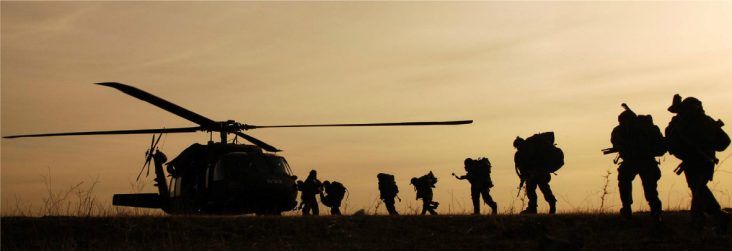Bill would give small businesses state tax credits for hiring combat veterans
by February 6, 2017 7:37 am 581 views

Sen. Dave Wallace, R-Leachville, is a military veteran and business owner. He thinks young combat veterans need an easier path to find jobs when they return to civilian life. The best way is to incentivize businesses to hire them, Wallace told Talk Business & Politics.
House Bill 1395 would create a tax credit for tax paying businesses that hire any combat veteran. It would be a $1,500 credit and would apply to combat veterans who have served since 2001. It’s aimed at Iraq and Afghanistan war vets.
“We need to help our young vets … when they come back from war, they’re a little lost,” he said. “They go out and fight for our country, and when they come back, they have a lot of problems they have to deal with. Finding a job shouldn’t be one of them.”
An analysis of the bill indicates it would cost about $125,000 per year. Wallace is still trying to find a way to pay for it, and he said he thinks he’ll have a resolution to that problem in the next couple of weeks. He hasn’t broached the bill with Gov. Asa Hutchinson, but he thinks the governor will support it once the details are meshed out.
The bill is now before the House Taxation and Revenue Committee.
Wallace owns Wallace, Rush, and Schmidt Inc., a company that remediates homes and buildings damaged by flood waters. He often hires combat veterans. The results have been positive, he said.
“Vets are always on time and are always hard workers,” he said. “Many have leadership and technical training that companies can’t afford to give to their employees. These are valuable assets in the private sector,” he said.
The bill states it applies to active-duty veterans, and the tax credits are for small business owners that meet the Small Business Administration (SBA) small business standards. Vets will have to work in the business for eight months during the calendar year and will have to be new hired, according to the bill.
According to analysis by the U.S. Bureau of Labor statistics, combat veteran unemployment remains slightly higher than in the general population. Unemployment for this group, often referred to as “Gulf War-era II veterans” was at 5.8% in 2015, a decline of 1.4%. Overall veteran unemployment was 4.6%, and the U.S. unemployment rate at the time was 5.5%.
Arkansas has more than 250,000 veteran residents, according to the U.S. Department of Veterans Affairs. An estimated 13% of Arkansas’ population has served in the military. The Natural State consistently ranks in the top 10 in the country for veteran population percentage.
But, according to WalletHub, the state ranks 42 among all states in quality of life measures for military retirees. The rating is based on numerous factors including healthcare, quality of life, and economic environment. Many military vets are young when their service ends, and finding a new career is a must, Wallace said. If they find work in the state, they may stay here once their active military service ends, he said.
He admits his bill will only help about 100 or less vets per year, but it’s a good start, he said.
“Veterans are timely, dependable, and often drug free,” he said. “When I was in the corporate world I always hired veterans. They really are good workers and leaders.”
